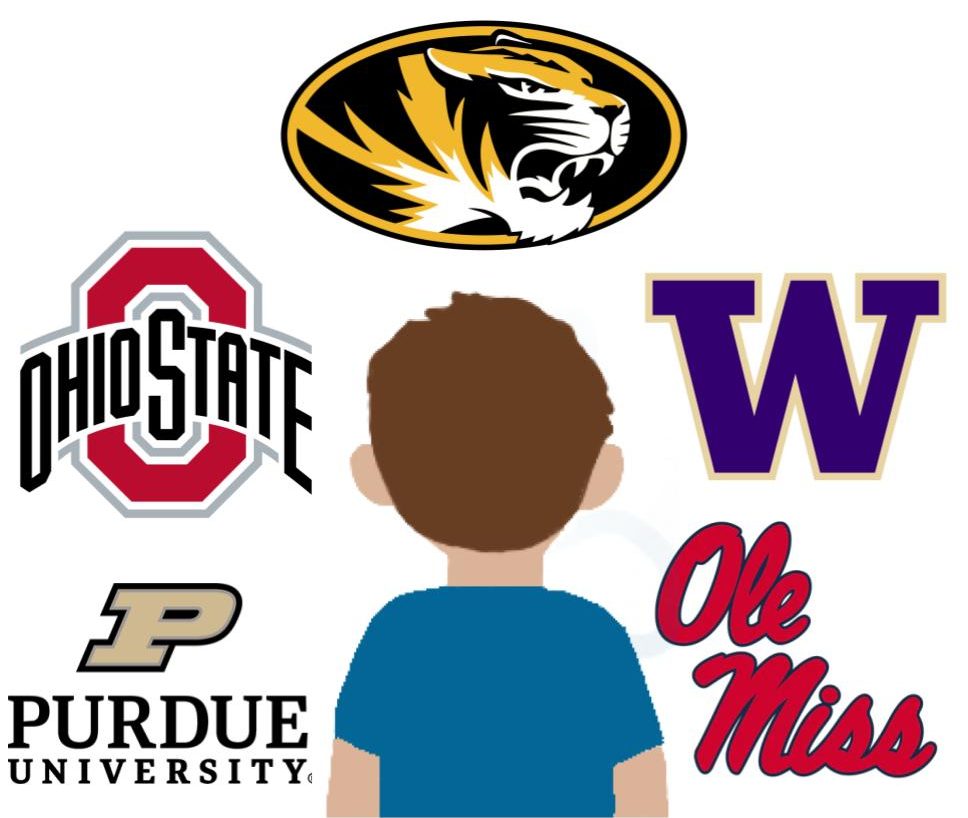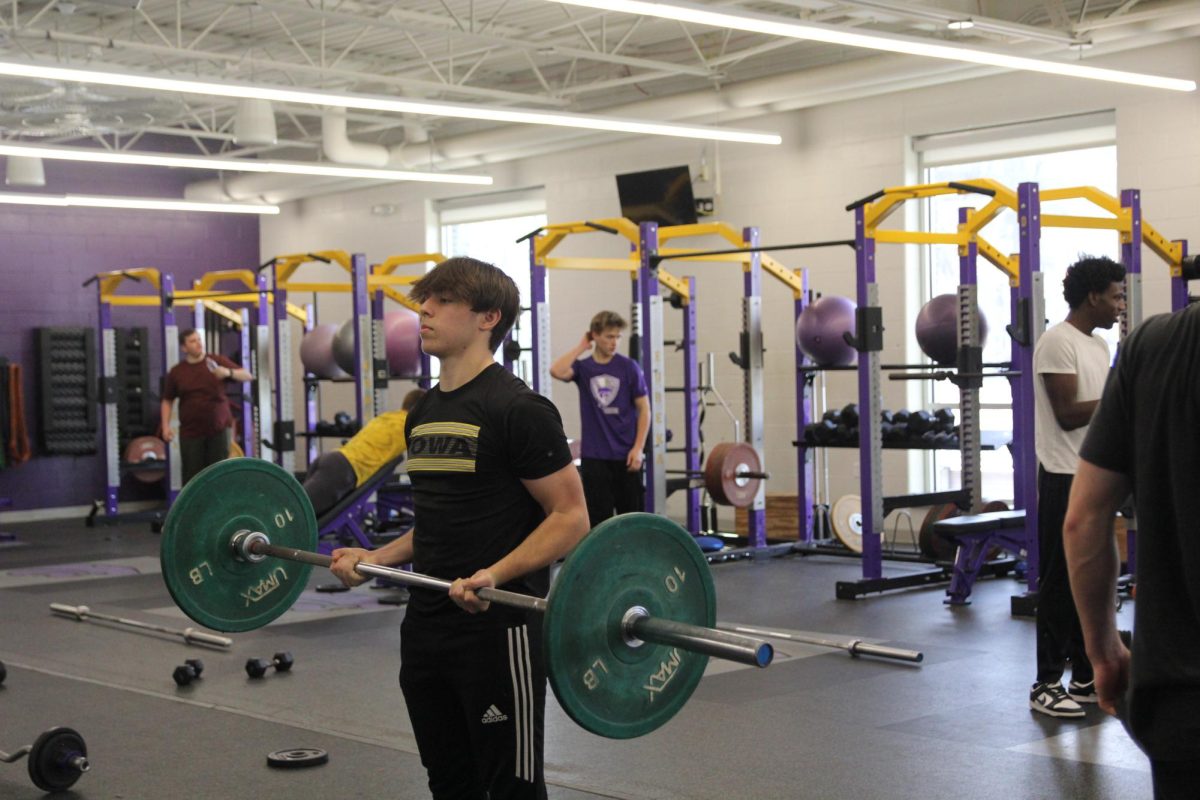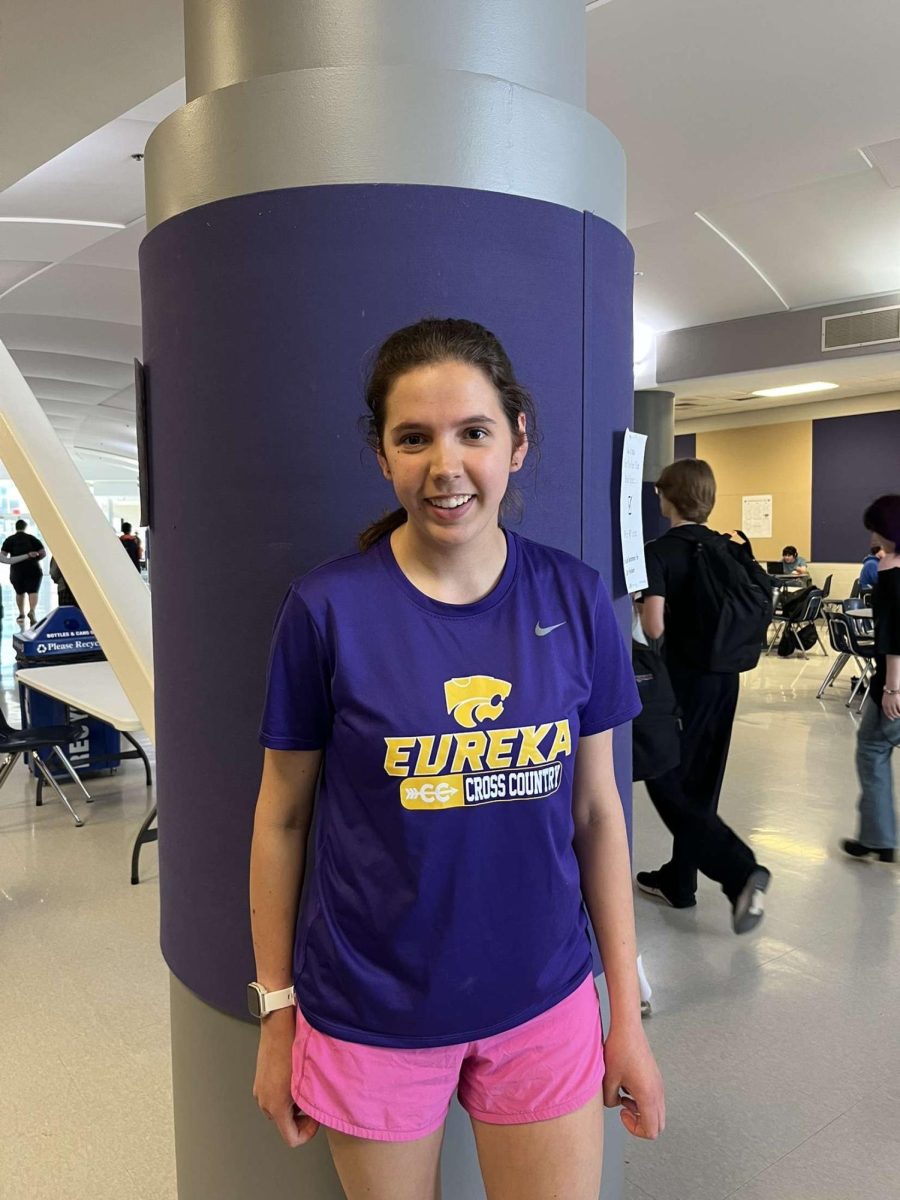Relief overcomes students when exiting testing rooms after taking an AP exam, but now they must wait until July for the results.
As I walked out of Gym A I felt like I was crossing a finish line, May 11. Grinning ear-to-ear, I bursted into the courtyard with the sun shining.
This year, I took AP European History. First semester, I had Mr. Jim Schulz, but then second semester, I switched to Mr. Paul Stanley. To prepare for my three-hour AP European History exam, I bought two review books, took three practice tests, read a notebook full of lecture notes and reviewed hundreds of notecards.
Students have the opportunity to receive college credit if they pass the AP exam. The exam is scored on a five-point scale. While a three is passing, most want to do better. Taking an AP class is a difficult decision to make when choosing a schedule for the following year.
There is normally summer homework and an extensive amount of work to do during the school year. Students are held to a higher standard and expected to work diligently for the grade they desire. Though they are warned at a meeting before the summer begins, many take too many AP classes, become overwhelmed and eventually drop the class at the end of first semester.
Teachers try their best to ensure that their students are ready for the grueling exam, but it is ultimately up to the studenst for their success.
Dean “Trey” Wymer (10) had Mr. Schulz as an AP European History teacher this year. Mr. Schulz prepares a six-week review for his students and expects them to stay on track if they want to pass the exam. Wymer is one of the few students who stayed on track and felt prepared before the exam.
“At first it was an overwhelming amount of information, but I felt better and better about it as it went on,” Wymer said. “By the time I got to the exam I felt pretty good about it.”
Studying for an AP exam is similar to training for a marathon. It’s not an enjoyable experience, but it is necessary for success.
Alexandria “Alli” Buettner (11) took six AP exams this year: the AP Psychology, Language Arts and Composition, U.S. Government, Comparative Government, Art History and Chemistry exams. She spent months in preparation for the exhausting AP Chemistry exam.
“I got the Barron’s review book, the Princeton review book, the CliffsNotes review book and the Crash Course review book,” Buettner said. “I spent nine months of my life preparing for that exam and now it’s all over.”
After my AP exam, I felt free. A weight was lifted off of my shoulders.
For ten nights in a row, I spent at least five hours studying each night, and I disregarded all of my other classes. It was impossible to memorize every fact that I learned, so I made my priorities. First, I read my review books and reviewed notecards.
The scores on my practice tests were discouraging, but I felt better once I learned that a 75 percent on the multiple choice section of the exam could get me a 5 overall.
For anybody who took an AP exam this year, there is only one thing left to do: wait. The majority of us spent weeks cramming in of the information that we learned all year. We spent days and nights studying, and now there is nothing we can do. Scores are mailed to students in July, but until then we must wait in anticipation.
Walking out of the testing room after finishing an AP exam is like training for a marathon for months and finally crossing the finish line. We know that everything that we have worked so hard for had a purpose and culminates in one day, but there was always a chance that we weren’t good enough.


















